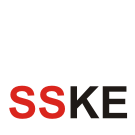From SSKE
Service Engineering and Management (SEM) Master Program
Enterprise Integration and Management Architectures
The course introduces Enterprise Resource Planning (ERP) systems attempting to integrate several data sources and processes of an organization into a unified system. A typical ERP system is considered as an implementing concept and set of tools (e.g. SAP) using multiple components of computer software and hardware to achieve the integration, and a unified database to store data for the various system modules. Strategic Enterprise Management refers to management techniques, metrics and related tools that companies can use to make strategic decisions. In practice, it is an advertising term intended to lend credibility to an information technology system.
Students will learn about the two key components of an ERP system: the common database and the modular software design. A common database is the system allowing each department of a company to store and retrieve information in real-time. Using a common database allows information to be more reliable, accessible, and easily shared. Furthermore, a modular software design is a variety of programs that can be added on an individual basis to improve the efficiency of the business. This is done by adding functionality, mixing and matching programs from different vendors, and allowing the company to choose which modules to implement.
The issue of business processes modelling and integration at the enterprise level is essential to ensure its competitiveness and agility to changes in orders and its adaptability to market dynamics. It is also addressed the issue of enterprise restructuring (administrative, technical, or support) and integration of new processes.
One of the course objectives is to provide a set of common languages for modelling of various aspects of the enterprise at different levels of abstraction (e.g. business - ERP, engineering - technical processes, workflows and process flows) and from different perspectives (e.g. functional, informational or organizational perspective).
Special attention is given in the course to the agility of the enterprise, to ensure that adequate resources respond to the rapid changing technological conditions, geo-political and market. It is underlined that modern enterprise systems - processes and products - must be designed, implemented, maintained and integrated in a systematic and systemic, very similar to software engineering principles. The Engineering Enterprise concept is presented - including strategic planning, enterprise modelling, enterprise integration activities as well as traditional industrial engineering.
The course also introduces the approaches used in modelling and formalization of enterprise activities, including: value analysis, quality standards ISO 9001, ISO 14001 and enterprise performance analysis. Reference to important EU projects concerning the integration of business processes with production ones are referred and analysed.



